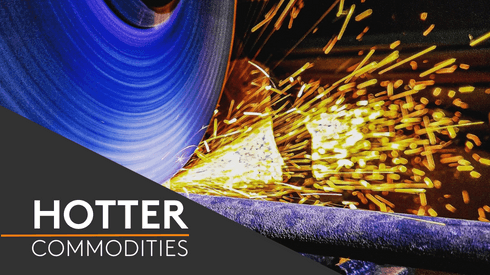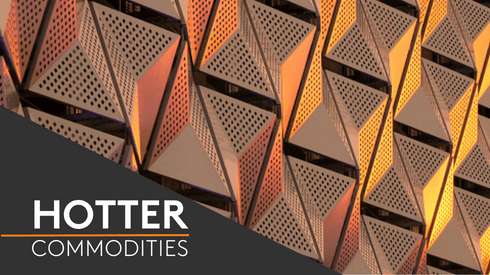Alumina
“The rising alumina price is the most important thing in the [aluminium] market right now” – Henry Van, Trafigura senior analyst
In a conference full of panelists and talking points, Van’s strident view on alumina stood out. Indeed, it was picked up by various news outlets covering the forum.
“This is really, really terrible for aluminium producers worldwide,” said Van. “Anyone who’s not looking at it needs to start looking.”
His comments come as the alumina index sits at a six-year high. Fastmarkets calculated its benchmark alumina index, fob Australia $536.31 per tonne on Thursday. It started the year at $350.53 per tonne on January 2, marking a 53% increase in the year to date.
Supply-side disruptions in Australia has driven up the alumina price. The disruptions range from a malfunctioning gas pipeline to a shuttered alumina refinery.
China production caps
“The cap, is the cap, is the cap” – Ron Knapp, special advisor to Hongqiao Group
Over the past 20 years, China has emerged as the world’s largest aluminium producer and helped to keep supply and demand balanced. Yet China’s government recently announced that aluminium production would be capped at 45 million tonnes per year.
At the conference, many wondered if that restriction would be removed to meet demand yet Knapp, who advises Hongqiao Group – an aluminium producer with various smelters in China – was adamant that the cap would remain.
“A wise man told me the cap will remain because of three factors: environment; energy and China doesn’t want to see what happened to steel happen to aluminium.”
Aluminium is an energy-intensive process that can have a negative environmental impact.
Meanwhile, Chinese steel producers are suffering from low prices caused by a glut of overproduction.
Green premiums
“We need a green alumina price” – Renato Bacchi, Alcoa’s chief commercial officer
“The low carbon aluminium prices that exist today are good because they bring transparency and incentivize producers [to be green]”, Bacchi said.
“But they are not perfect because they only measure the carbon footprint of the smelting phase,” Bacchi added, referring to when alumina is processed into aluminium.
“We need a price that looks at the full supply chain from mine to smelter and that includes alumina.”
Unlike some aluminium producers that have to buy alumina from third parties, Alcoa owns bauxite mines and alumina refineries. “We are very happy with our bauxite and alumina assets because being vertically integrated is an advantage. It means we can control the raw materials.”
“If you just have renewable power for the smelting phase but are using alumina that was created with energy from coal, then that is no good as it still has a large carbon footprint. We need a low-carbon index that helps producers, consumers and users transition to a greener product.”
Fastmarkets assessed the aluminium P1020A premium, in-whs dup Rotterdam, inferred low-carbon at $0-30 per tonne on September 6.
In August, Fastmarkets issued a consultation to launch an additional low-carbon differential for P1020 aluminium in Europe to capture longer term liquidity within a three-12-month timing window.
Scrap supply
“Export restrictions are not the answer to Europe’s short supply of scrap” – Murat Bayram, Director & Head of European Non-Ferrous, EMR
Scrap was one of the hottest topics at this year’s International Aluminium Conference. Recycled aluminium is sought after by producers as it dramatically cuts the carbon footprint of the final product. As a result, it has become expensive and harder to come by.
One solution mooted by the European Union is to restrict the export of scrap aluminium, in a bid to ensure that European aluminium producers can source scrap to make lower-carbon aluminium.
Yet scrap traders like Murat are against the idea, arguing that it would impede the investment in scrap processing facilities, therefore harming producers’ ability to source the right grades.
“Instead of a ban the processors and aluminium producers need to work more closely together,” Murat said.
As one scrap trader said on the sidelines of the conference: “I was at the Fastmarkets Ali conference in Athens back in 2019 and nobody wanted to speak to me. Now my agenda is full of meetings. Everybody needs scrap.”
Fastmarkets assessed the weekly aluminium scrap floated frag, delivered consumer Europe price at €1,650-1,720 per tonne on September 6, narrowing down from €1,650-1,830 per tonne a week ago.
Fastmarkets is proposing to launch two price assessments for extrusion scrap to capture the growing demand for so-called primary scrap from wrought aluminium producers.
While scrap was traditionally used mainly by secondary producer of cast aluminium, primary producers are increasingly looking to maximize the recycled content of their raw material feeds due to the pressures of decarbonization. As result, demand for wrought-friendly scraps is rising sharply and Fastmarkets’ new assessments aim to reflect that.
The consultation on this proposal ends on October 4.
To understand the complex market conditions influencing price volatility, download our monthly base metals price forecast, including the latest copper price forecasts today. Get a free sample.






